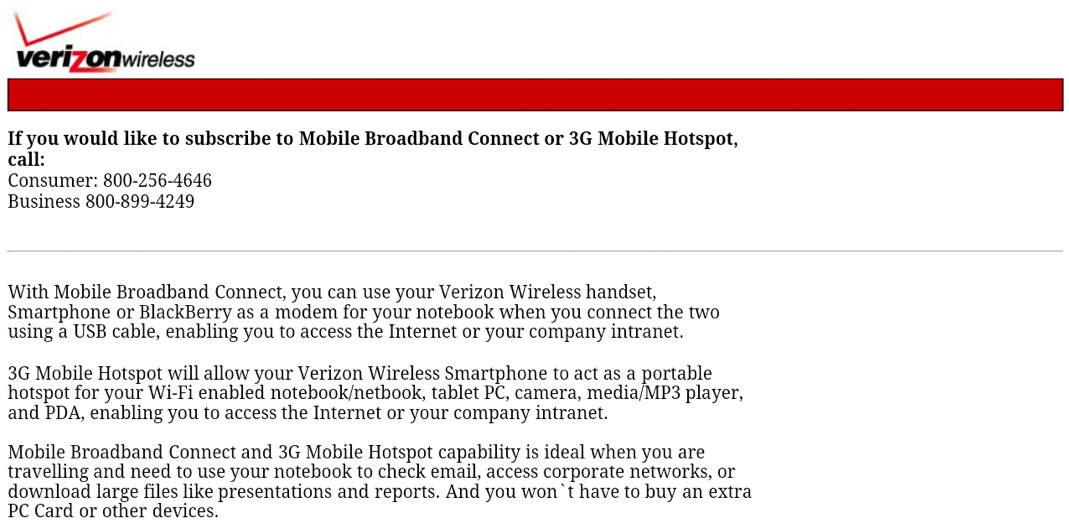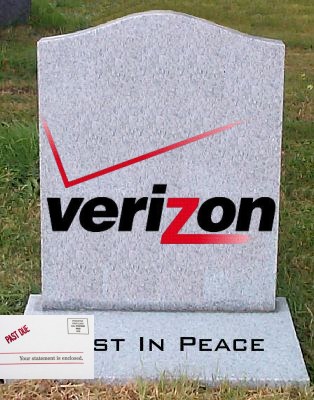 A consumer group has filed a complaint with the Federal Communications Commission alleging that Verizon Wireless is violating its agreement with federal authorities by attempting to restrict the use of third-party wireless tethering applications.
A consumer group has filed a complaint with the Federal Communications Commission alleging that Verizon Wireless is violating its agreement with federal authorities by attempting to restrict the use of third-party wireless tethering applications.
The basis of the complaint, filed by Free Press, is that Verizon agreed not to “deny, limit, or restrict” customers from accessing the applications of their choosing as part of Verizon’s LTE license spectrum agreement.
“Verizon’s conduct is bad for the public and bad for innovation. It also appears to be illegal under the FCC’s rules that govern Verizon’s LTE network. Users pay through the nose for Verizon’s LTE service, and having done so, they should be able to use their connections as they see fit. Instead, Verizon’s approach is to sell you broadband but then put up roadblocks to control your use of it,” said Free Press policy counsel Aparna Sridhar. “In 2007, Verizon argued aggressively against the adoption of these basic openness protections. Having lost that policy battle but won the auction for the spectrum licenses, Verizon has adopted a new regulatory strategy: simply ignore the rules on the books. The Commission must move quickly to investigate and stop these harmful practices.”
As Stop the Cap! reported earlier, Verizon has taken measures to try and warn off customers using the third-party tethering apps instead of purchasing the company’s $20 tethering plan, which offers 2GB of data usage per month. In addition to text warning messages, the company has asked Google to disable access to tethering software in the Android Market for Verizon customers.
From Free Press’ complaint:
Efforts to disable smartphone features and create barriers to this useful, productive, pro-innovation activity should cause concern no matter who initiates them; but when Verizon Wireless interferes with the use of third-party tethering applications, that conduct also violates the rules governing its LTE network. When Verizon purchased the licenses for the spectrum over which it has deployed LTE, it agreed to abide by a set of pro-consumer, pro-innovation openness principles. In particular, Verizon promised that it would not “deny, limit, or restrict the ability of [its] customers to use the devices and applications of their choice.” Verizon’s recent move to limit and restrict access to tethering applications by actively requesting that Google make them unavailable in the Android Market (the Google market for mobile applications) deliberately and unequivocally violates this prohibition. The FCC should immediately open an investigation to assess Verizon’s practices and determine appropriate penalties for this clear breach of the Commission’s rules.
[…] When the FCC auctioned the C Block of the Upper 700 MHz spectrum — the spectrum on which Verizon has deployed its LTE offering — the Commission adopted important license conditions to protect the openness of broadband networks. It provided that licensees using that spectrum “shall not deny, limit, or restrict the ability of their customers to use the devices and applications of their choice.” In the words of Chairman Kevin Martin, the Commission adopted the conditions to ensure that “[c]onsumers will be able to use the wireless device of their choice and download whatever software they want onto it.”


 Subscribe
Subscribe


